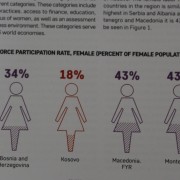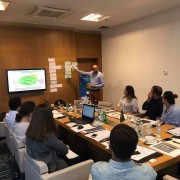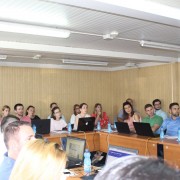
Women's workforce participation in Kosovo is 18 percent, the lowest in the region, according to a recent report on “Women in the Workforce.” The report was presented on September 6th by the Riinvest Institute, based on the findings from a survey of 600 women on their working conditions, work-life balance, parental leave issues, and other barriers that women in Kosovo face in the work place and job market. The findings will help inform the economic agenda that the Women’s Economic Forum will use to lobby the Government through the National Economic Development Council.

A three-year EMPOWER Credit Support (ECS) Program that concluded in July 2017 established a local, independent, sustainable credit guarantee facility, the Kosovo Credit Guarantee Fund (KCGF). The Fund is designed to issue portfolio loan guarantees to financial institutions to cover up to 50 percent of the risk for loans and thereby increase lending to MSMEs.

This program supports the Democracy in Action (DIA) coalition’s domestic election monitoring mission to confirm the fairness of elections, encourage and educate citizens to exercise their voting rights, and increase public confidence in the electoral process. Democracy in Action (DIA) is a coalition of Kosovar CSOs engaged in election monitoring activities and electoral reform since 2007. In 2017 the coalition became a full member of the European Network of Election Monitoring Organizations (ENEMO).

The Support to Parliamentary Research activity supports the Department for Research, Library and Archives (DRLA) within the Kosovo’s Assembly by strengthening the DRLA’s ability to fulfil the parliamentary committees’ need for high-quality, objective research and by providing parliamentary research reports for the DRLA.

Civil society organizations and the private sector are an essential part of public procurement reform. While some of them are aware of the process most need to learn how to use the e-procurement system: all businesses must submit their procurement bids electronically through the platform, and the CSOs that monitor public procurement must know how to enter the system and observe procurement processes on the electronic platform. And yet, few individuals in either group had previously received any training or even had a basic familiarity on the new e-procurement system.








Comment
Make a general inquiry or suggest an improvement.